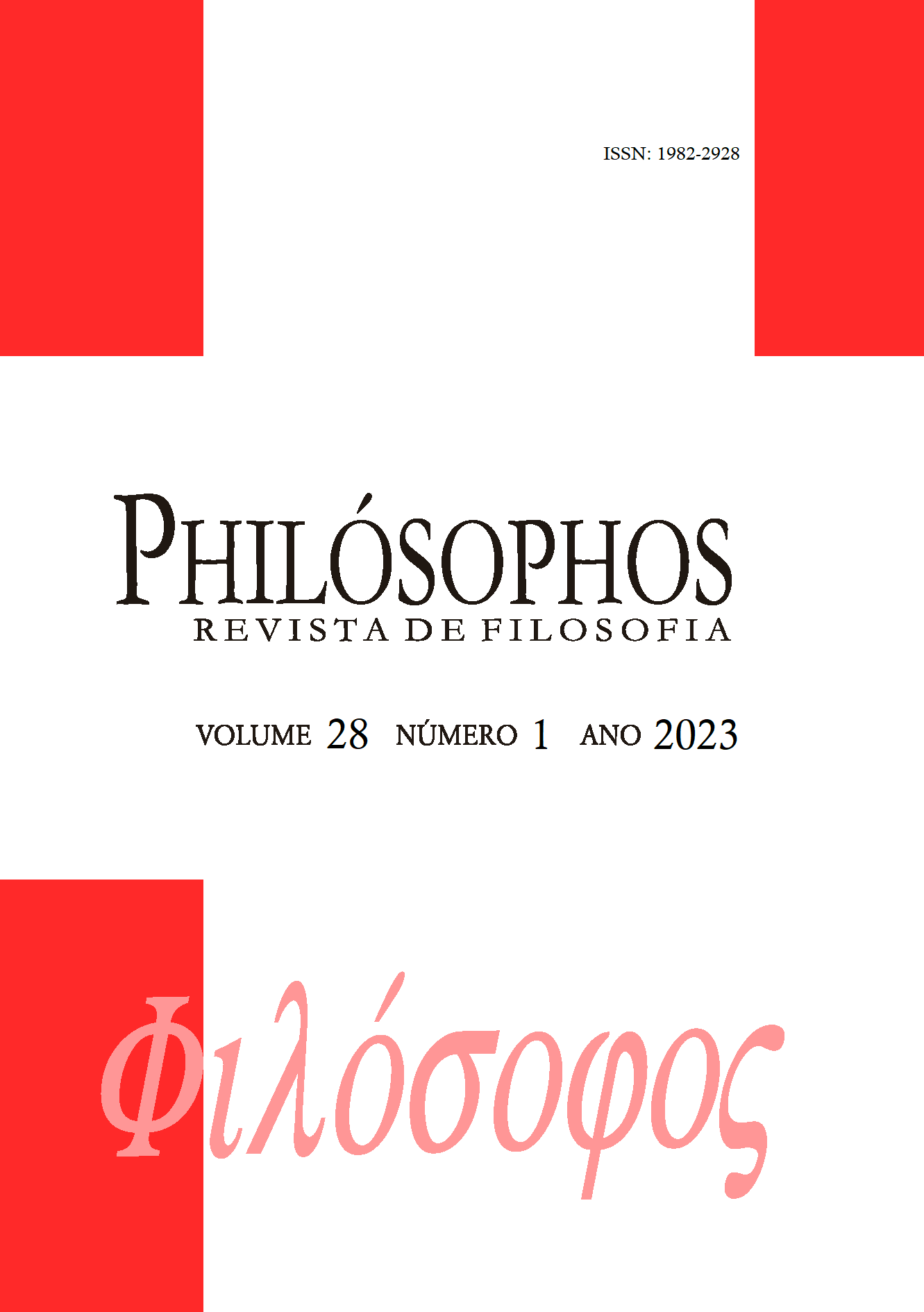Frege's two notions of "extension"
DOI:
https://doi.org/10.5216/phi.v28i1.75351Palavras-chave:
Frege, extensão, identidade.Resumo
Nosso objetivo é responder a uma questão proposta por Richard Heck no artigo “Formal Arithmetic Before Grundgesetze”. Heck indaga a respeito das razões pelas quais Frege levou quase oito anos para honrar suas promessas de concluir seu grandioso projeto de fundamentar a matemática na lógica. Embora Heck tenha fornecido algumas respostas, pensamos que uma discussão filosófica mais adequada ainda pode ser oferecida. Este artigo tentará preencher essa lacuna apresentando o que entendemos ser o problema central enfrentado por Frege em Die Grundlagen der Arithmetik: a falta de um critério unificado para fixar o significado das proposições de identidade da matemática. Acreditamos que o filósofo alemão finalmente tenha decidido preencher essa lacuna, fornecendo uma nova interpretação para o conceito de “extensão”, uma que acrescentasse alguns refinamentos importantes a sua concepção anterior. O novo conceito assim construído permitiu a Frege unificar seu tratamento das proposições de identidade, incluindo em seu sistema um critério universal para decidir a verdade de qualquer proposição de identidade apoiado por sua famosa lei básica V. Assim, nossa alegação será que a resistência de Frege e as dúvidas sobre a inclusão do axioma V como uma lei lógica em seu sistema foram a causa primária desse atraso.
Downloads
Downloads
Publicado
Como Citar
Edição
Seção
Licença
Copyright (c) 2023 Araceli Velloso

Este trabalho está licenciado sob uma licença Creative Commons Attribution-NonCommercial-NoDerivatives 4.0 International License.
Autores que publicam nesta revista concordam com os seguintes termos:
- Autores mantêm os direitos autorais e concedem à revista o direito de primeira publicação, sendo o trabalho simultaneamente licenciado sob a Creative Commons Attribution License o que permite o compartilhamento do trabalho com reconhecimento da autoria do trabalho e publicação inicial nesta revista.
- Autores têm autorização para assumir contratos adicionais separadamente, para distribuição não-exclusiva da versão do trabalho publicada nesta revista (ex.: publicar em repositório institucional ou como capítulo de livro), com reconhecimento de autoria e publicação inicial nesta revista.















